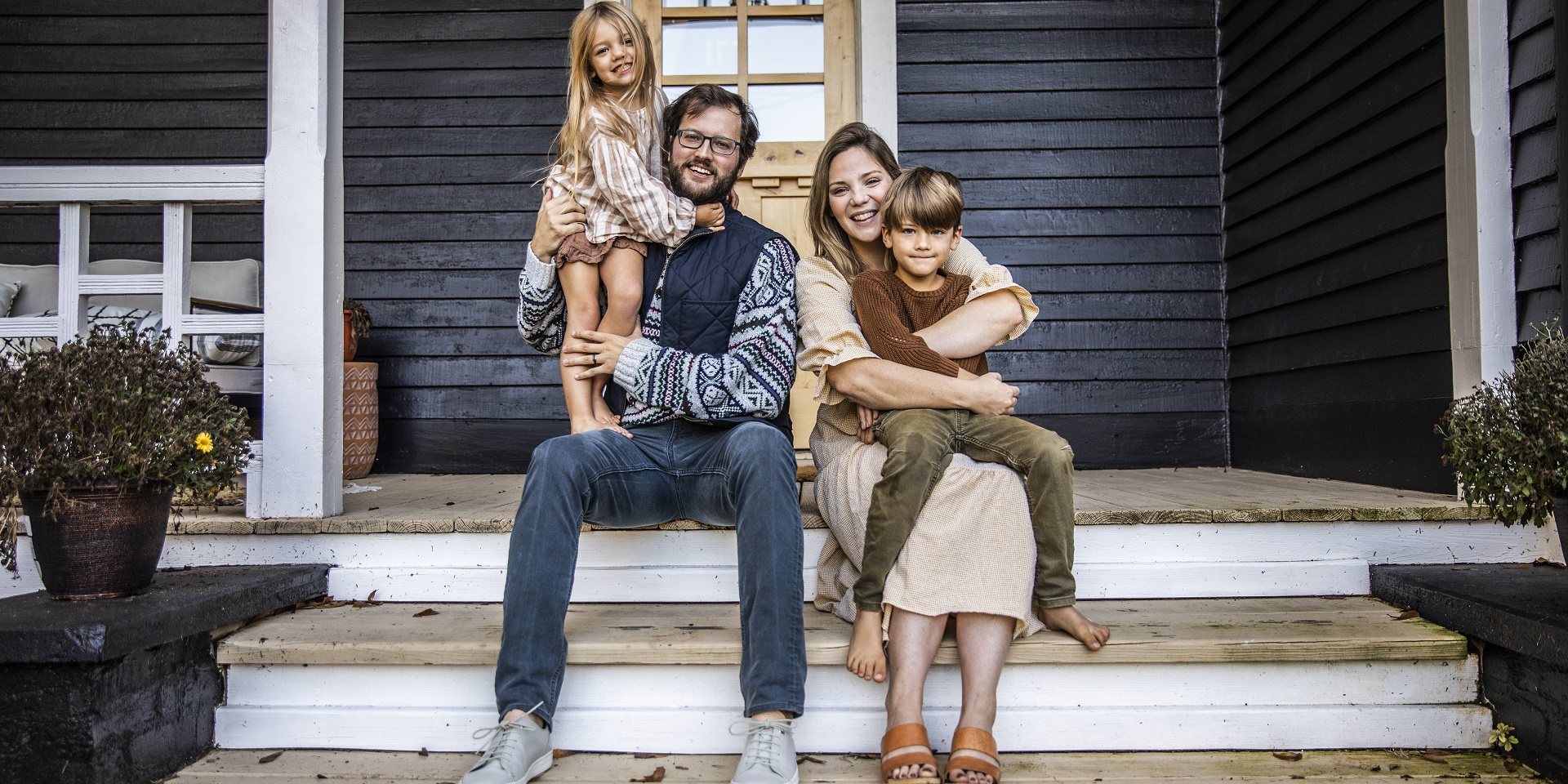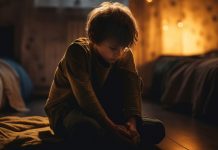When I became a parent, someone told me that I would learn to be a child. However, I was determined to be more of an adult than ever and not repeat attitudes that I considered wrong, including those of my parents.
Everything went well until I discovered myself being the parent I had promised myself I would not be. It was then that the child in me, who had thought she was an adult, turned on me, telling me what a bad parent I was. I realised that from that point on there are only two routes I could take: to accept that I am pre-programmed by my own experiences, or to try to understand the parents that we as a society criticise.
The first option would entail believing that life is just a series of sad acceptances of a predefined existence. The second option, however, is like a warm embrace that gives you the courage to press on in a direction that, although foreign to you, is the one you know you want. I chose the second option.
In the process, I not only gained a better understanding of the parents whose children throw tantrums on the floor of the store, but I also understood the emotionally unavailable parents, the helicopter parents, and the permissive parents—so well that my inner child calmed down.
The helicopter parent: “You won’t suffer like I did”
Helicopter parents (that is, those who constantly hover over their children; the overprotective ones) behave as a kind of “scarecrow” for anything that comes anywhere close to independence, success, and freedom. It is the label that has become almost synonymous with incompetence in education. Curiously, this has become the reason for one of our generation’s biggest complaints against their parents; some call it hypervigilance.
I’ve seen it in parents who had to overcome many difficulties in life: sometimes vices, sometimes disappointments, or sometimes just consequences of choices they’ve made. When a new human being appeared in their life, they promised themselves that he/she would never suffer as they did.
I have seen it in medical parents who are afraid of rare reactions they have encountered in their practice. I have noticed it in parents who want to control and respect boundaries, but who were themselves in the middle of an inner process of fighting habits that they considered sins or vices. I have found myself to be a helicopter parent, trying to be the parent I have read about—the one who doesn’t cause emotional trauma to their children and understands them, flying over every inch of the space occupied by my children in the desire to prevent something that would be psychologically damaging.
The problem is that hypervigilance leads to blockage, like a broken toy that repeats the same sound over and over. For each parent the trigger is different—from spiders to the child choking on food, diseases, drugs, mental suffering, etc. In the face of fear, even if they know that a certain reaction is not desirable, helicopter parents feel pushed by the uncertainty of the context towards what is familiar to them—hypervigilance, control.
I understood helicopter parents when I became honest with myself. It was when I realised that no fear is better than another and that, essentially, we can all react the same way when faced with a sufficiently strong stimulus that is tailored to our fears. The label doesn’t scare me anymore, even when I notice that it applies to me, because I know it’s just proof that I’m human.
The emotionally unavailable parent: “I have no more emotional resources”
When they wake up in the morning, most parents intend to be present for their children that day. The news, the latest social media updates, working overtime, housework, or repairs will have to wait—in theory. In reality, all parents (if they’re comfortable enough to be honest) tell of moments when they would have done anything just to not be present or to be present only physically and not mentally.
Initially, I thought it was a problem of parents who work, of mothers who do not devote all their time to raising children and, as such, a characteristic of the dynamics of modern society. I felt guilty for investing in qualities other than the “biological” ones—until one day when I started watching the vlog of a family who spent all their time together: they were together starting from household chores to the time dedicated to home-schooling.
It attracted me because, at first glance, it was the fairy-tale land of an education with present parents. With admirable sincerity, in one of the videos, the parents analysed their attitude as parents. To my surprise, one of their wishes was to spend more time with their children…
I realised that quality time really exists and that whatever virus destroys it has nothing to do with family structure, jobs, or society, but with something much deeper—emotional resources. The same impulse of the parent heading towards a new meaning given by a project at work is also felt by the parent who, in the middle of a difficult day at home with the children, remembers that the shelf in the pantry needs to be reorganised.
I understood the parents who are on the phone when their kids are around, who work too much, or bake fancy cakes while the kids are watching cartoons when I realised that everyone has their own way of replenishing their emotional resources. By definition, the relationship with children depletes resources without perhaps ever offering the same immediate satisfaction of completing a project or receiving a reward that equals the sacrifices. Giving unconditional love requires a lot of emotional resources, patience, and hope when you see nothing on the horizon.
The permissive parent: “You won’t be constrained like I was”
Children’s emotions and independence seem to be the measure of modern parenting, where children’s independence is closely related to learning emotional regulation mechanisms that are practised from childhood. Hence, the range of solutions for raising an emotionally secure and independent child is very broad. It is also an endless source of contradictions on social media groups or between experts in the field.
Whatever importance we give to modern education, our generation seems to be in a constant search for freedom and independence in response to the restrictions imposed by the education given by parents of past generations, among other things. Probably never in history have we debated more intensely the education we received. This cannot but leave marks on the choices of a new parent.
“We will not say ‘do it because I say so’”, “We will let them choose what they want to do”, “We will understand the child’s true needs”, “We will not punish them”, “We will not use physical correction”, “We will not educate using fear or emotional blackmail” are just some of the motivations we hear around or inside ourselves, as parents.
For some, childhood traumas are directly related to God and how they perceived Him. This is where decisions such as “We will not force them to go to church”, “We will not force them to learn biblical texts by heart”, or, more vehemently, “They will not come in contact with the religious environment” are born.
In Philip Yancey’s autobiographical book Where the Light Fell, one can read between the lines that an event which for one person is trivial produces real suffering for another, a suffering which they can experience with the same intensity 60 years later. In his case, growing up in a religious environment that he calls fundamentalist forced him to build his own image of God, one very different from the one he grew up with—a God full of love and grace. Unfortunately, this was not also his brother’s experience.
I came to understand that such an experience is strong enough to fuel a philosophy of life. For some, it can become the motivation of an entire parenting style—from an empathic one, but with firmly established boundaries, to one without boundaries, focused exclusively on attachment and the child. I came to understand permissive parents, analysing how my past, unaccepted sufferings shape me as a parent, making me blind to certain consequences. Sometimes, uncertainty is more reassuring than the certainty of a path that has led to suffering, no matter how small it may have been.
A two-way street
I came to understand critical parents and why it is easy for us to misunderstand some of their uncompromising attitudes. As parents, we often feel incompetent because the little ones are not born ready to give feedback, and we may never see some of the results of the education we’ve given them. This is a challenge even for those whose validation comes from inner peace rather than external validation.
Seeing mistakes in others, including our parents, gives us the impression that we are in control of our own competence. This, however, is just an appearance, because in the end we all have fears, sufferings that have marked us deeply, and moments when we run out of emotional resources.
Most likely, at least once in our lives we will be helicopter parents to our children, too permissive, or emotionally unavailable. And then, the first ones who will criticise us without empathy or who will push us to the point of exhaustion in order to get the desired results will be none other than ourselves.
Finally, I came to understand Jesus and the tone in which He asked: “Why do you look at the speck of sawdust in your brother’s eye and pay no attention to the plank in your own eye?” (Matthew 7:3). I was helped by a friend who reminded me that understanding those around me beyond their attitudes is a two-way street.
As a parent, accepting your own humanity and those around you will ensure that the education offered to children is not reactive to the past, but personalised to the challenges that will come. It will be the beginning of a road that does not stop at the “youareenough” hashtag; a way on which, although we are imperfect, there is hope, because we are supported by a power that depends not on how hard we try, but on where we place our fears, emotional problems, and past suffering.
Andreea Beatrice Lospa realises that understanding the attitudes of parents beyond social labels brings more useful solutions in a young adult’s own experience of being a parent.



















